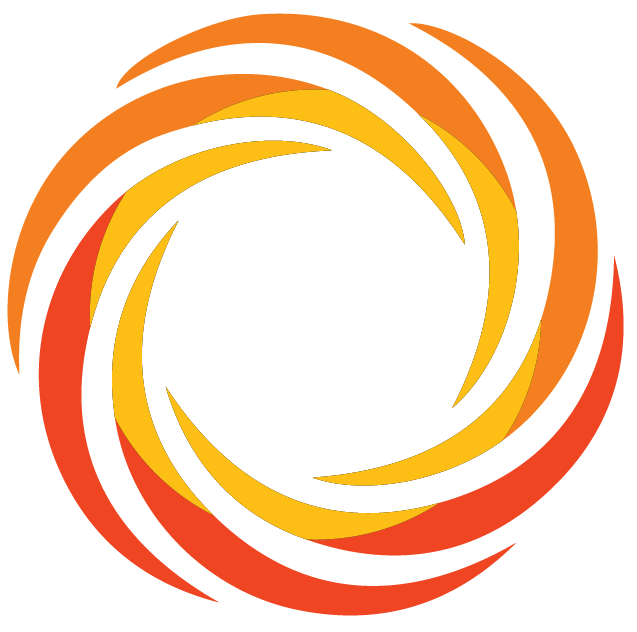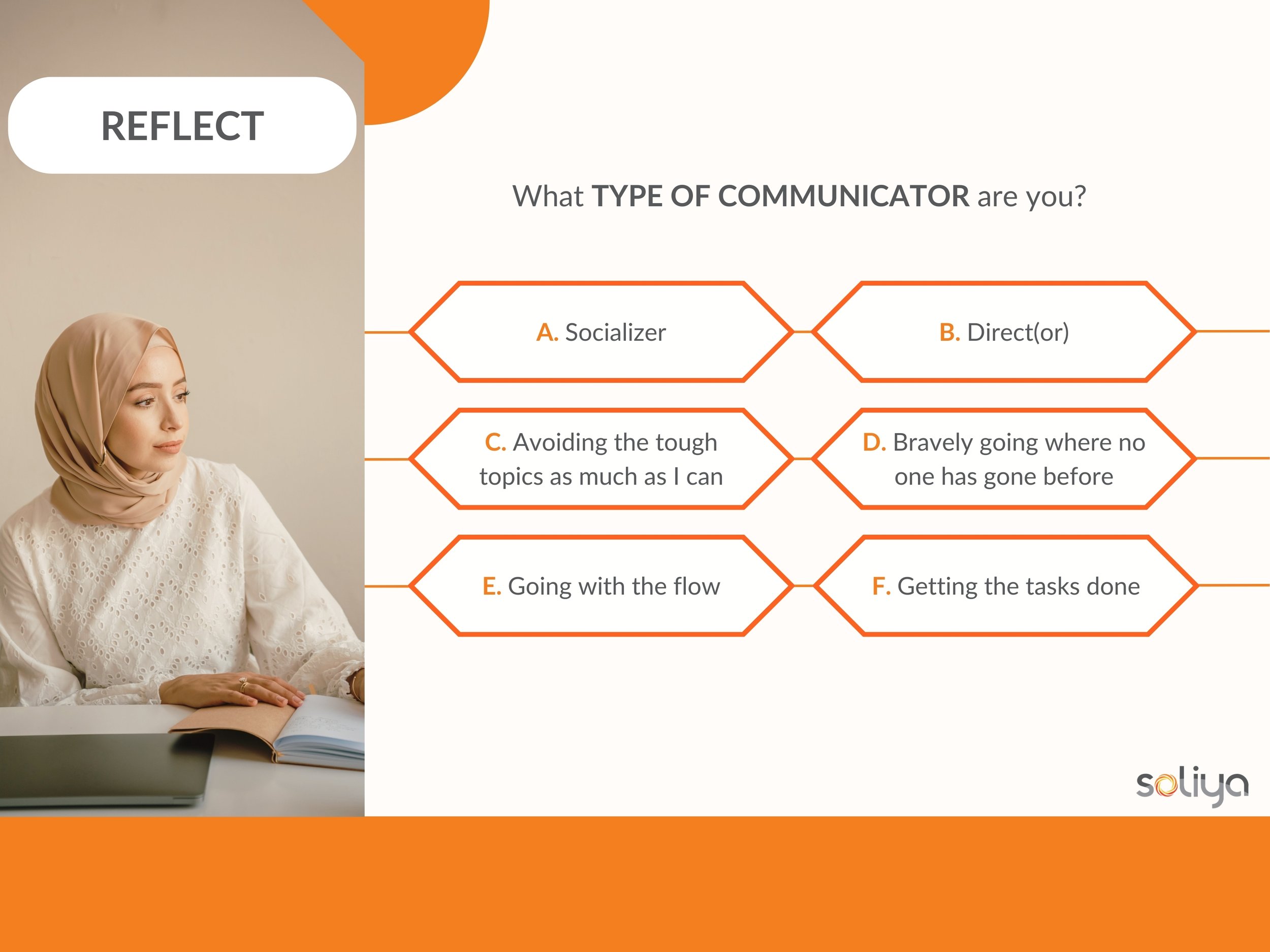Start with you!
The first step for constructive communication is self-awareness. For us in Soliya, it precedes all the other communication tools and is something that requires continuous practice.
The more aware you are of your identity and groups of belonging, the more you can mitigate how you engage with those who are different.
The more aware you are of your triggers and likes and dislikes, the better you are able to navigate your emotional responses in communication.
And the more aware you are of your communication habits, the more you can adapt and grow your communication skills in different settings.
Understanding your own communication style is essential for navigating conversations with others. Look at the options below or come up with your own to understand what kind of communicator you are.
When you think about yourself as a communicator, what are your strengths and challenges? Why?
SITUATION 1
It is your first time in a group, meeting people from all over the world. You’re chatting with a new person, and they tell you a joke related to their cultural context that you have never heard before.
How would you likely respond?
-
Comment:
This may seem safe, but you’re missing a chance to learn and sometimes engage in future conversations! Being curious about others' cultures and asking clarifying questions promotes a better understanding of other perspectives and where they come from. -
Comment:
Showing curiosity about someone’s culture is a great way to build rapport. Plus, you’ll learn something new, which makes you a more versatile communicator. -
It may seem respectful to move on politely, but finding new people to communicate with doesn’t guarantee a full understanding. Learning from diverse groups is a unique opportunity! Asking about the personal meaning behind words can deepen your grasp of diverse identities.
SITUATION 2
You’re discussing the first project assigned to you and your team. One of your group members isn’t contributing much during discussions.
What would your strategy be?
-
Comment:
Asking open-ended questions invites different perspectives to emerge and shows that each voice matters in team collaboration. -
Comment:
Self-awareness of your assumptions is beneficial for moving the discussion forward and building constructive communication for the future. Hearing from everyone and transparently seeking each group member’s vision would not only enrich the discussion with new perspectives and solutions but also allow everyone to contribute their unique superpowers through constructive collaboration. -
Comment:
It may seem like the fastest way to complete the project, but communication with everyone in the group offers a huge advantage! You are missing out on ideas you hadn't thought of before. Most importantly, this is an opportunity to collectively master leadership and creative problem-solving skills!
SITUATION 3
During a heated group discussion, someone makes a statement about a sensitive social issue that you strongly disagree with.
What would you do?
-
Comment:
Redirecting the discussion may temporarily ease tension, but it avoids addressing the root issue. Tough conversations can be a valuable opportunity to learn from differences. -
Comment:
There is always value in exploring someone's perspective, including the personal meanings and experiences that shape their views. A deeper understanding of individual contexts can foster empathy, promote honest exchanges of opinions, and enrich the canvas of the discussion with diverse perspectives. -
Directly challenging someone’s view without seeking understanding can create defensiveness and shut down the conversation. Engaging with differences is a brave approach in tough, yet meaningful conversations.
Practice self-awareness
Find your own superpower behind constructive communication by practicing self-awareness. Get inspired by stories from our partners and alumni - real experiences that spark growth and connection!



